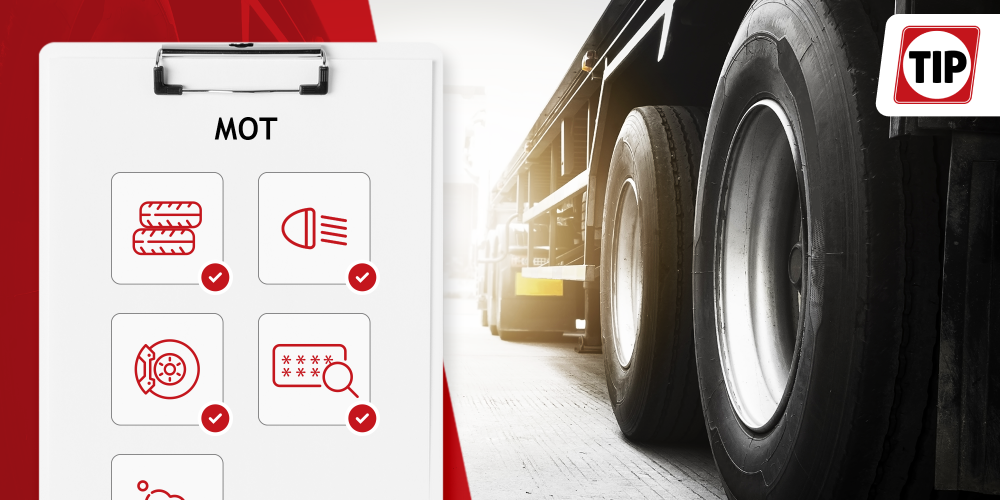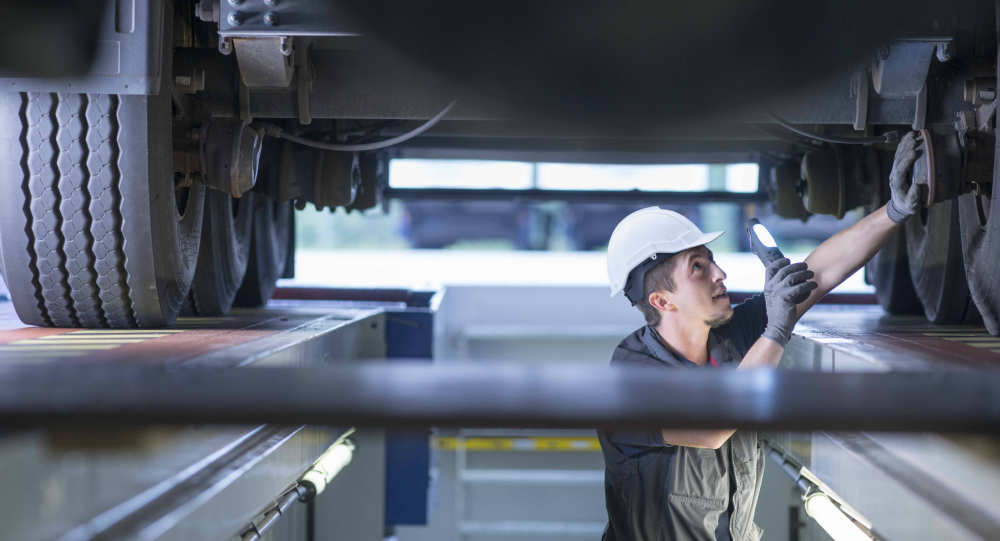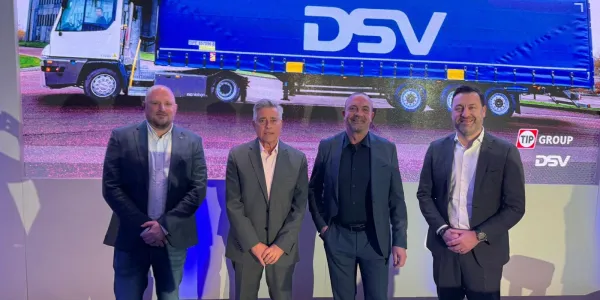MOT: keep your vehicle roadworthy!

Owning fleet assets requires you to be aware and understand the legal requirements involved. One of the key things to be aware of is that you have a legal obligation to pass the MOT (Ministry Of Transport) inspection regularly, to verify that your vehicle is safe to drive. Having a MOT inspection ensures that the heavy vehicle is in optimal, safe and operating conditions, so you can both continue use it for business and avoid any incidents during its use.
What is MOT?
The MOT is an annual test for heavy vehicles (trailers, trucks, specialized equipment, etc.) to ensure that the equipment meets safety standards.
Under your country's legislation, all commercial vehicles over a certain weight travelling to Europe must have an annual MOT regulation test to ensure they are roadworthy and secure. If the vehicle’s weight is above the legislation weight, then it is subject to a separate set of regulations.
What is the purpose?
The MOT inspection ensures your equipment is in a safe operating condition, to protect the driver, the vehicle and other users on the road of a potential incident. Having a technical inspection reduces carbon footprint by tracking down vehicles with dirty engines and tired components.
This annual inspection is different from the maintenance and repair of your vehicle. It is recommended to regularly check your fleet assets with specialized and certified technicians in workshops.
In case of an emergency, it is important to rely on a 24/7 roadside assistance provider to quickly get you back on the road.
How often do MOT inspections take place?
Usually, commercial vehicles should receive their first test one year after they were first registered, and then annually from this point onwards. However, the scheduling of annual inspections defers per country.
If you do not submit your vehicle for an annual inspection within the mandatory time limit you risk a fine.
How and where to pass the MOT?
The owner of the vehicle or the approved user is responsible for ensuring roadworthiness of their leased and/or rented vehicles.
Depending on your country, the technical inspection can be done in an accredited control center which has a specific authorization for heavy goods vehicles, in a Civil Motorization Office or in any garage licensed by the Ministry of Transportation.
Only a qualified and certified inspector/local motorization inspector is allowed to do a MOT.
Contact your local technical inspection center to find the closest location.

Which documents are needed?
To pass the MOT, you must bring your official documents. The owner of the vehicle or the approved user is responsible for ensuring that their records are up to date and factual. The documents vary depending on your country; therefore, we advise you to ask your local technician inspector center directly. Here are some examples of the minimum required documents you need to bring:
- Your appointment letter (if you have one)
- The vehicle’s last MOT
- The vehicle’s plating certificate
What is controlled?
The following list includes the basic items reviewed on trailers, to ensure that your equipment is safe and operating as intended:
- Unit identification
- Brakes
- Visibility
- Lights, reflector, and electrical equipment
- Doors
- Roof
- Axles, wheels, tyres, suspension
- Chassis
- Noise and pollution
- Other equipment
Speak to your local technical inspection center to learn more about the safety requirements.
What are the different results?
If you have no defects or a minor defect without any concern for safety or environment, the result is roadworthy.
If a vehicle fails the inspection, there are two options:
- Major defect with some concerns about safety or environment: you need to come back to re-do the test after repair, after a certain time lapsed.
- Critical defect: you cannot use your unit unless you repair it. You must repair what needs to be repaired and re-do the MOT test after.
Your pre-MOT inspection for truck and trailers with TIP
TIP is a leading equipment service provider, across Europe and Canada. With more than 50 years of experience, we are experts in providing all the services that a customer will require during the life cycle of a trailer.
Since more than 15 years in our 110+ workshops, TIP is offering pre-inspection wherever a customer needs to do one.
Depending on your country, our TIP workshops are certified for the legally required MOT inspection. Contact us for more information.





















